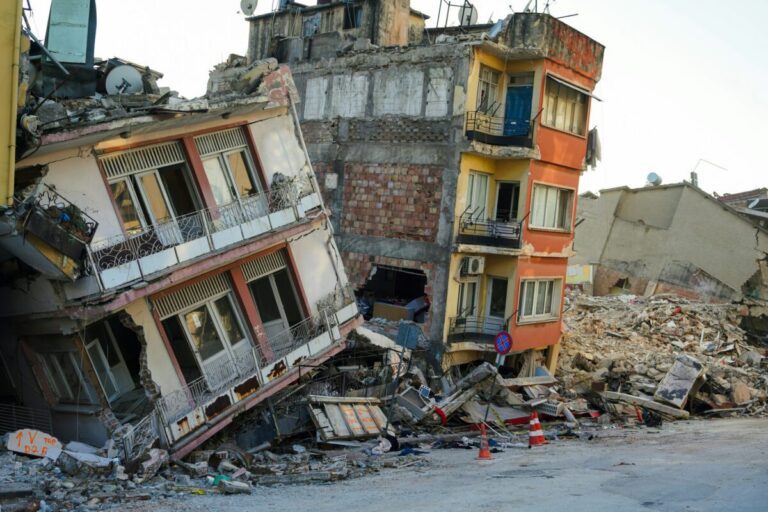In the early hours of February 6, 2023, a series of powerful earthquakes struck southern Turkey and northern Syria, unleashing catastrophic destruction and causing heartbreaking loss of life. At 4:17 a.m. local time, a massive magnitude 7.8 earthquake hit near Gaziantep, Turkey, followed by relentless aftershocks that continued for hours. This region, which had not witnessed such seismic activity in over a century, faced overwhelming devastation as hundreds of thousands were trapped beneath collapsed buildings and debris.
The Catastrophe in Turkey
Turkey bore the brunt of the disaster, with the death toll climbing past 50,000 and countless others injured or displaced. Cities like Adıyaman, Hatay, and Kahramanmaraş were among the hardest hit, where entire neighborhoods were flattened. Rescue operations faced immense challenges due to damaged infrastructure, blocked roads, and ongoing aftershocks that threatened both survivors and responders. The Turkish government mobilized a massive relief effort, working alongside international partners, but the scale of destruction made rescue and recovery a daunting task.
The global community responded quickly, sending search-and-rescue teams, medical aid, and emergency supplies from countries including the United States, United Kingdom, and Japan. Despite this outpouring of support, the path to recovery remains long and fraught with challenges.
Syria’s Dire Struggle Amid Conflict
In Syria, the earthquake struck a nation already crippled by a prolonged civil war. The northwestern province of Idlib, home to many displaced persons, suffered severe damage. The fragile healthcare and emergency systems, strained by years of conflict, were further overwhelmed. Aid delivery was complicated by ongoing hostilities and fractured control over regions, leaving many survivors without timely access to essential resources.
International and local relief groups worked tirelessly to provide food, medical care, and shelter, but the war-torn infrastructure made these efforts especially difficult. The earthquake’s aftermath deepened the humanitarian crisis, exacerbating suffering among vulnerable populations.
Stories of Courage and Resilience
Amid the widespread devastation, countless tales of heroism surfaced. Rescue workers, both local and international, braved dangerous conditions to pull survivors from rubble, sometimes after days trapped underground. These acts of bravery highlighted human perseverance in the face of overwhelming odds.
While lives were saved, the magnitude of destruction to homes, schools, hospitals, and critical infrastructure means rebuilding will be a monumental task for both nations. The disaster underscored the vital importance of international solidarity, as countries united to support Turkey and Syria during this crisis.
A Call for Enhanced Disaster Preparedness
This devastating earthquake has renewed global awareness about the importance of disaster preparedness. It emphasized the urgent need for robust international cooperation and investment in building resilient communities capable of withstanding natural calamities. As Turkey and Syria embark on the long road to recovery, the world is reminded of the fragility of life in seismic hotspots and the critical importance of readiness for future disasters.


